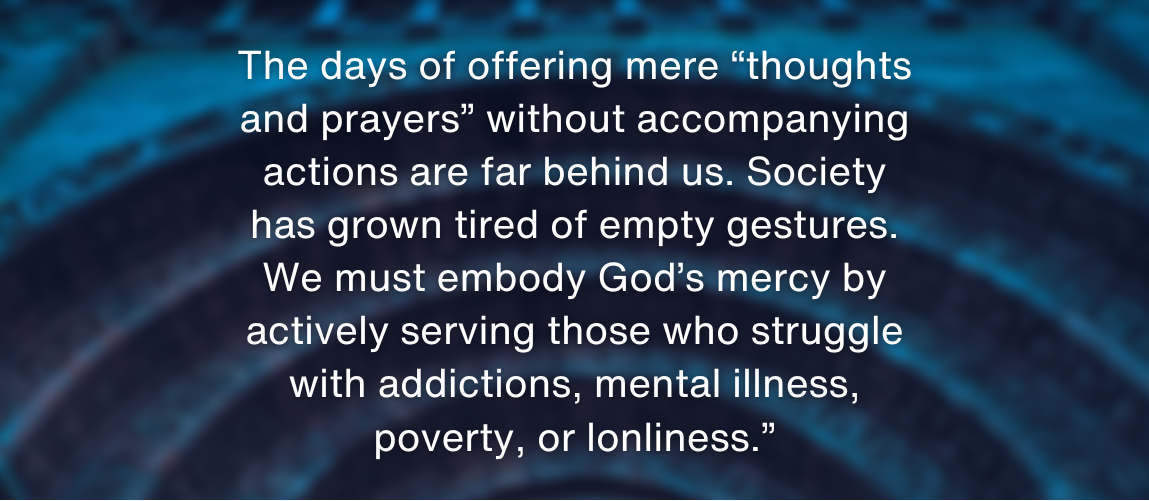“What’s going to save the Church?” It’s the question that I hear more and more every day. In our serach for an answer, we must confront a worrying truth: nostalgia often clouds our vision. While nostalgia may seem to offer comfort to us, it ultimately undermines the true changes needed for the Church to thrive and grow.
Many of you may know me. I love traditional worship, and am happiest using the BCP and traditional hymns. So I’m not for one moment saying that we need to sacrifice our worship or the sacraments—absolutely not. I think it’s what we do beyond the Sunday worship that needs to radically change.
The current state of the Church may seem fine to those of us on the inside, but it is not always serving those outside its walls. An inward focus, the reluctance to expand our ministries, and a failure to engage with our communities holds back our mission to spread the Gospel. We must be willing to invest resources—yes I mean money—and foster genuine partnerships with external organizations and individuals who are already making a positive impact. If we lock money away rather than investing in new ways to show mercy and hope to the world, the “future” that we are saving for may never come. We need to take chances. Now.
In a time when clergy positions are being reduced, and younger vocations are few, we must see that the survival of the Church depends on our ability to evolve and adapt to the changing reality. To find the “next generation,” we must look beyond the confines of our sanctuaries and into the wider world. We must invest in partner projects that showcase God’s mercy, like the Home Again Furniture Bank that is highlighted on page 13 of this issue of Anglican Life. As we read in James 2:26, “As the body without the spirit is dead, so faith without deeds is dead.”
This is not about filling pews for the sake of making things like they used to be, or about filling the collection plate: it’s about saving our souls and sharing the profound message of God’s limitless mercy.
It is discouraging to realize that many of our friends do not attend church, at least for me it is. They may not be openly opposed to it, but they are just not intersted. What can we point them to? What about love and compassion? God’s mercy is an infinite resource that we should generously share with everyone, without reservation. It’s not like kindness and mercy, when shared widely, somehow diminish their value. No one is beyond God’s reach, and it is our job as Christians to convey this profound truth.
To offer the world genuine hope, rooted in the transformative power of God’s boundless love, we need to change how we do things. Hope without God’s mercy rings hollow in a world that craves genuine change. The days of offering mere “thoughts and prayers” without accompanying actions are far behind us. Society has grown tired of empty gestures. We must embody God’s mercy by actively serving those who struggle with addictions, mental illness, poverty, or lonliness.
The Anglican Church must work harder to partner with those who are already established in doing good work in the world, seeing God working outside our walls and institution as the key to our survival and not a threat to it. We shouldn’t copy what they are doing. They have learned how to best help those in need, and we need to learn from them, not compete against them.
As we contemplate the future of the Church, let’s put aside any empty nostalgia and embrace the endless possibilities offered by God’s mercy, forgiveness, and grace. By focusing outward, partnering with the wider community, and sharing this divine gift generously, we can put a spark back into our faith, restore hope, and truly change lives.


